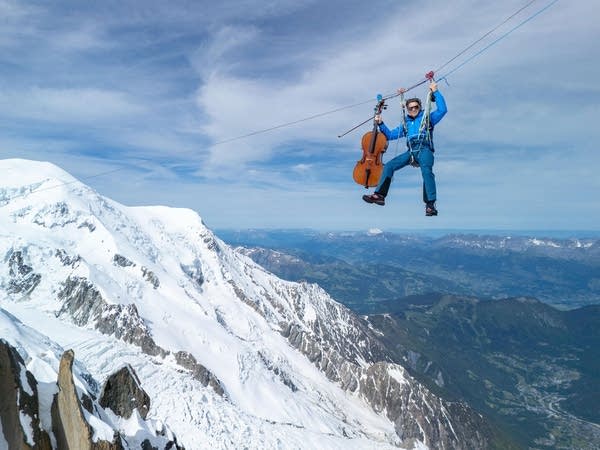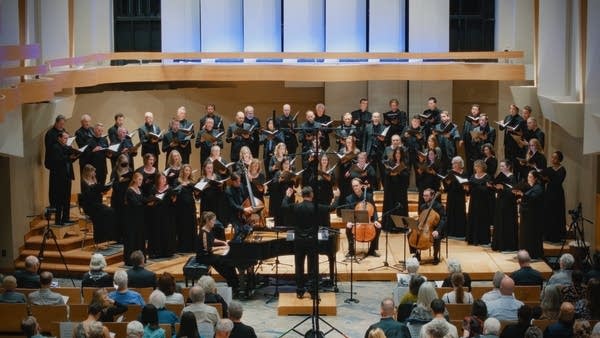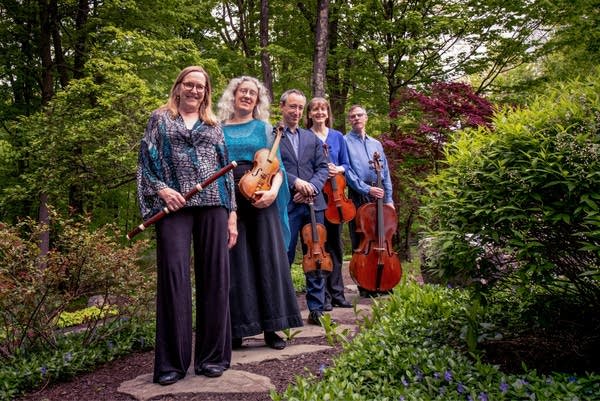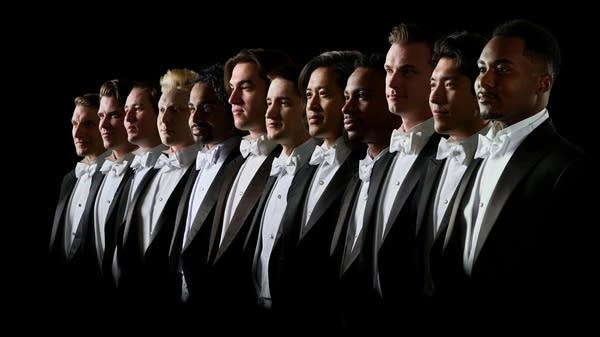
"There are parts of The Rite of Spring that are just so visceral and so honest. It's a great gift that Stravinsky gave to 20th century music - total honesty. Not the sort of music that was going to fit someone's intellectual theory or anything like that—this is what he felt. He wrote it, using the musical languages that he'd learned and creating his own as needed. It's incredibly honest writing."
That's Jon Kimura Parker talking about Igor Stravinsky's iconic work, The Rite of Spring, and why he just couldn't resist creating his own piano transcription of this work, which premiered 100 years ago. The world premiere of this transcription appears on his new recording, along with his transcription of Stravinsky's earlier ballet, Petrouchka.
"The music I was listening to as a student was mostly the Canadian rock group Rush, Frank Zappa, Genesis. I was so into that kind of music, and rhythmic complexity of all kinds. And when I heard Rite of Spring, I thought, This is classical music, and this is following a continuum that, for pianists, starts with Bach.
"I was so overwhelmed at how incredibly great the music was. And then I discovered that Stravinsky had actually made this piano-4-hand arrangement of Rite of Spring. I immediately got together with some colleagues who were willing to sightread through some pretty difficult stuff and we would start playing it. And as we were playing, I would say, now, this is really weird but there's a bassoon line missing in this section here. And I was getting incredibly obsessed with getting every single detail in there and surprised that there were details missing. I subsequently discovered that when Stravinsky wrote duet arrangements for his ballet scores, it wasn't really for performance but to facilitate ballet rehearsal - to make it possible for two pianists to sit down and make the music happen. So I thought, OK, he wasn't trying that hard. Maybe I can start adding things back in."
Before he knew it, Parker was knee-deep in creating his own piano transcription of The Rite of Spring.
"Rite of Spring is, of course, so spectacularly orchestrated and with so much detail. Everywhere you look and listen, there's a lot going on simultaneously. Stravinsky wrote much of the piece sitting at an upright piano. And Stravinsky composed at the piano a lot. But what makes it work so well at the piano is that the Rite of Spring is, at least in many of its sections, highly rhythmic."
The piano is a percussive instrument, so it can easily pull off the rhythmic challenges of this piece. At the same time, the piano is remarkably capable of orchestration and voicing, something Jon Kimura Parker learned a lot about while creating these transcriptions.
"When I'm playing two, three, four or even five different things at the same time, and each one should have its own articulation and its own melodic profile and maybe even individual pedaling on some of the notes and different lengths—all of those things, in combination, create effects at the piano that I wasn't aware that I could even make. And the learning process of being inspired by the orchestral sound of the Rite of Spring and trying to make it happen at the piano was huge for me."
This may be the world premiere recording of Parker's transcription of The Rite of Spring, yet he makes it clear this is only one reflection of this work.
"At the point of the recording, I'd felt that I'd pretty much reached my ideal and that everything was as I wanted it to be. But I still experiment. Because every time I play it I like to have the idea, with both 'The Rite of Spring' and Petrushka, that I'm doing something a little fresh, something different, or just experimenting. Experimenting is a really big part of performing and composing."
Jon Kimura Parker refers to himself as an emerging artist because he's always hoping to learn or try something different. In fact, he adds, it's one of the gifts he realized while working on his new transcriptions of The Rite of Spring.
"After working on the project, I realized there's music I can play now that I've never really felt confident about playing. I've just learned Pictures at an Exhibition by Mussorgsky. I feel like I can make that piece truly colorful now because of what I've learned working on the Stravinsky project."
Free download from "Rite", courtesy of Jon Kimura Parker:
Right-click (or command-click on a Mac) to download
The download includes excerpts from Stravinsky's The Rite of Spring, "Dances of the Maidens" and "Game of Abduction".
Love the music?
Show your support by making a gift to YourClassical.
Each day, we’re here for you with thoughtful streams that set the tone for your day – not to mention the stories and programs that inspire you to new discovery and help you explore the music you love.
YourClassical is available for free, because we are listener-supported public media. Take a moment to make your gift today.
Your Donation
About New Classical Tracks®
Host Julie Amacher provides an in-depth exploration of a new classical music release each week.
Subscribe on Apple Podcasts, TuneIn, Radio Public, or RSS.











